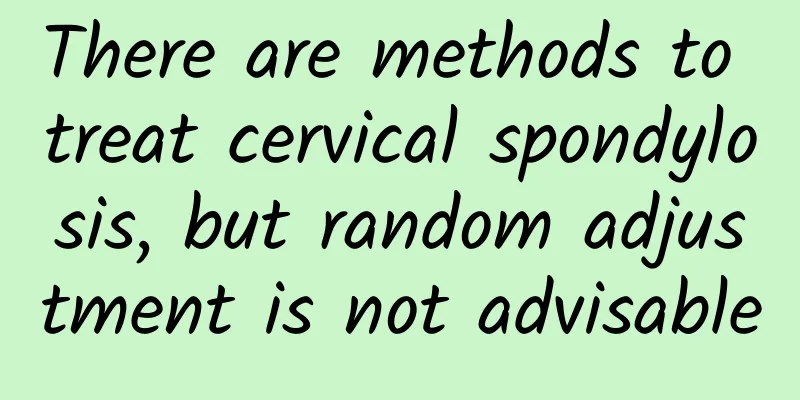What should I pay attention to when I have premature ovarian failure?

|
The ovaries are important organs for women. Only with ovaries can eggs be produced and women can conceive smoothly. Otherwise, women will be affected by diseases, which will affect their fertility. Among ovarian diseases, the more serious one is premature ovarian failure. Such symptoms can affect many functions and also have a shadow on women's mental health. Therefore, after the symptoms of the disease are discovered, it is necessary to treat them well, which can alleviate the condition and make the disease more complicated. So what should we pay attention to when premature ovarian failure occurs? For a young POF patient, POF brings not only physical effects but also more serious psychological effects. Especially when they hear that premature ovarian failure is incurable and irreversible, it is like a bolt from the blue for patients who have not yet given birth. This means that they will never be able to have their own offspring in the future. The pain is imaginable. For patients with premature ovarian failure, the most important treatment is estrogen-progesterone replacement therapy to relieve symptoms, prevent long-term complications (osteoporosis, cardiovascular disease, Alzheimer's disease, etc.), and prevent uterine atrophy (in preparation for donated egg and embryo transplantation). At the same time, psychological treatment should be carried out to change concepts. For women who have not given birth, do not blindly expect the elusive recovery of ovarian function or even pregnancy. Instead, they should accept donated egg and embryo transplantation to assist pregnancy at the right time that is acceptable to both the concept and the economy. Estrogen-progesterone replacement therapy (HRT) Estrogen and progesterone replacement therapy for premature ovarian failure is very important for young POF patients. It can relieve the symptoms of low estrogen and urogenital tract atrophy (in preparation for donated egg embryo transplantation), prevent long-term complications (osteoporosis, Alzheimer's disease, etc.), and reduce the risk of colon cancer by 37%. However, long-term HRT also has certain risks, such as the occurrence of endometrial cancer and breast cancer. However, studies have shown that estrogen-progesterone replacement therapy when progesterone is used for more than 10 days per month can reduce the risk of endometrial cancer to almost zero, while the risk of breast cancer is slightly increased, but the mortality rate does not increase. Usually a combination of estrogen and progesterone is used. Before applying HRT, an individualized balance of pros and cons should be made, and necessary monitoring and follow-up should be carried out. Ovulation induction therapy There are many reports in the literature about the successful experience of inducing ovulation in POF patients. The conditions for screening patients before treatment are mostly short amenorrhea duration, not too high blood FSH level, and clinical diagnosis of follicular POF. Generally, after HRT or GnRHa is used to suppress endogenous gonadotropin (mainly FSH) to a lower level (<20IU/L), sufficient hMG/hCG is given to induce ovulation while ultrasound monitoring is performed. The hMG dosage is required to be large and the duration is long. The theoretical basis for the success of down-regulation in ovulation induction is that after down-regulation, the endogenous FSH level decreases, the number of FSH receptors on the surface of granulosa cells increases, and the sensitivity of the ovaries is increased. However, prospective case-control studies found that this treatment was not significantly different from HRT. Van Kasteren believed that the slight increase in pregnancy was related to close monitoring and guidance of sexual intercourse, and could also be explained by the natural recovery of intermittent ovarian function. Therefore, we do not have sufficient reason to blindly recommend patients to use gonadotropin to induce ovulation. A more correct approach should be to advise patients to come to the hospital for follicle monitoring when they feel symptoms of increased estrogen (such as increased vaginal discharge, breast tenderness, etc.). If a dominant follicle is found, active measures can be taken to guide sexual intercourse or perform IUI or natural cycle/modified natural cycle IVF according to the patient's condition, so as to seize this hard-won opportunity in time. Immunotherapy Because immune factors are a definite cause of premature ovarian failure, immunosuppressive treatment is effective for patients with premature ovarian failure who have evidence of immune factors. There have been multiple reports of pregnancy occurring during immunosuppressive therapy. What should we pay attention to in case of premature ovarian failure? The most important thing after the disease occurs is disease treatment. This is something that patients must pay attention to. In fact, we must pay attention to disease care. Women will have psychological trauma after the disease, and treatment will be difficult. After patients discover abnormal symptoms, they should take good care of themselves in terms of psychology, diet and hygiene. Finally, they should have regular physical examinations. The causes of the disease are very complicated, and changes in the disease must be discovered in a timely manner. |
<<: At what age do girls develop breasts and breast enhancement methods
>>: How to check for non-gonococcal vaginitis?
Recommend
What are the dangers of ovarian cysts
Ovarian cysts can cause many adverse symptoms, su...
Can I get eyelash extensions while breastfeeding?
Everyone loves beauty. Many mothers after giving ...
A must-read for families with adolescent children! How should a girl choose her first piece of underwear?
The cover image of this article comes from the co...
How long will it take for labor to occur if you urinate frequently?
When a pregnant woman is about to give birth, she...
How to remove radiation spots for young people
Nowadays, computers, mobile phones and television...
What dishes are eaten at the beginning of spring? What traditional vegetables are eaten at the beginning of spring?
The Beginning of Spring is the first of the 24 so...
Which type of swimming crab is better? Is it better to steam or boil the swimming crab?
If you have been craving for it recently, buy a f...
A small amount of blood in the vagina should not be ignored
The vagina is a reproductive organ unique to wome...
Eczema: An unexpected dialogue with the skin
Eczema, a seemingly common skin disease, has brou...
When is the best time to have an abortion?
Some girls, after getting pregnant unexpectedly, ...
How to relieve uterine contraction pain after normal delivery
When pregnant women choose natural childbirth, mo...
Breast enhancement method with peanuts, red dates and astragalus
Poor breast development is a big problem that giv...
If your calf circumference is lower than this number, you are in danger! 2 ways to help you prevent it →
“Money can’t buy you slimness in old age.” As peo...
Is the uterus on the left or right side?
Speaking of the uterus, female friends are not un...
What should I do if I get vaginitis infection?
Vaginitis is one of the most common gynecological...









